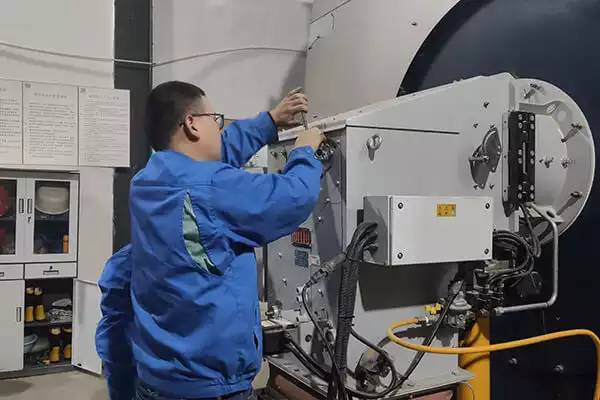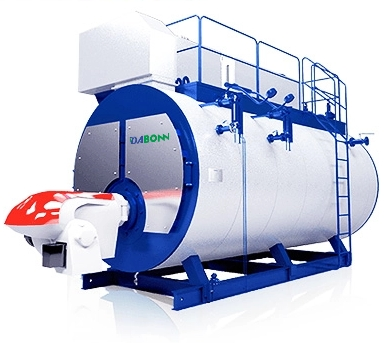
Introduction
If there is an issue with your boiler or it breaks down, you will need to fix it as quickly as possible. This article will help you identify if there is an issue with your boiler and 10 tips to fix it. So that you don’t have to pay for expensive professional repairs right away.
Tip1: No Heat or Hot Water
This is a prevalent issue. And could be caused by a malfunctioning thermostat, a broken diaphragm or airlock, a faulty pump, or low water levels. It’s crucial to check these components and troubleshoot them accordingly.
Tip2: Strange Noises
If you hear banging, gurgling, or whistling sounds, it might indicate air in the system, kettling (mineral buildup), or a faulty pump. Bleeding radiators, flushing the system, or getting a professional inspection can help resolve these noises.
Tip3: Leaking
Leaks can occur around the boiler due to issues with the pressure relief valve, pump seals, or corrosion in the system. Addressing leaks promptly is essential to prevent further damage and water waste.
Tip4: The Pilot Light Goes Out
A pilot light that frequently extinguishes could be caused by a faulty thermocouple, a draft, or gas supply issues. Ensuring proper ventilation and checking the thermocouple’s condition are key troubleshooting steps. If it continues to go out, contact a professional to diagnose and repair the problem.
Tip5: Low Pressure
Low boiler pressure can result in reduced heat or hot water. This might be due to water leaks, a faulty pressure relief valve, or bleeding radiators. Re-pressurizing the system and fixing any leaks can help maintain optimal pressure.
Tip6: Frozen Condensate Pipe
During colder months, the condensate pipe might freeze, causing the boiler to shut down. Thawing the pipe using warm water or insulation can restore the system’s functionality.
Tip7: Radiator Issues
The radiator problems are cold spots, inefficient heating, or unbalanced heating. These might stem from trapped air, sludge buildup, or faulty radiator valves. Bleeding the radiators to release trapped air and checking for obstructions can often resolve this issue.
Tip8: Ignition Problems
If the boiler struggles to ignite, it could be due to a malfunctioning ignition lead, electrode, or sensor. Cleaning or replacing these components can ensure proper ignition.
Tip9: Pressure Fluctuations
Rapid pressure increases or drops can be caused by various factors, including water leaks, faulty pressure relief valves, or expansion vessel issues. It’s crucial to maintain the correct pressure within your boiler. Consult your manual to find the optimal pressure range. If fluctuations persist, call a professional to investigate and resolve the issue.
Tip10: Boiler Keeps Switching Off
If the boiler turns off unexpectedly, it might be due to a faulty thermostat, water flow issues, or overheating. Verifying thermostat settings and ensuring proper water circulation can help maintain stable operation.
How to Repair Your Boiler Before Calling an Engineer?
Here are some simple steps you can take to check your boiler:
Check the thermostat. If it’s not set at the right temperature for heating, it may be causing the problem.
Check the pilot light. If it’s out, you’ll need to relight it and allow it to heat up for a few minutes. Then attempting to start the boiler again.
Check the pressure switch is functioning correctly. If there’s no power going through this device, then your boiler won’t work. You should also check that your pressure gauge has been installed correctly. So that you can measure how much pressure is being generated inside each pipe connected to your system.
Check for blockages in pipework or radiators. This might be stopping hot water from circulating properly through them and into rooms.
Check the power supply by switching off at least one other appliance in your house and seeing if this helps with your heating. If it does, then there’s a good chance that something else is drawing too much electricity and causing an overload on your system.
Can a Plumber Fix a Boiler?
Yes, a plumber can fix a boiler. A plumber is skilled in boiler repair and has the right equipment and tools to help you get your heating system back up and running. A professional plumber also has the knowledge needed to fix boilers, as well as training on how best to do so.
Why Does my Boiler Pressure Keep going up?
If your boiler pressure keeps going up, it could be due to a number of reasons. The most common cause is that the water isn’t being heated properly by the boiler and so it needs more pressure to heat up. This can happen if:
- Your system has been damaged or worn down over time. This means it cannot generate enough heat energy to warm up your home properly.
- There are problems with other elements such as valves and pipes. These increase pressure in order to compensate for any issues within your system.
How to Fix Boiler Pressure?
Checking the pressure gauge
A typical pressure gauge should read between 0 and 1 bar (0-14 psi).
Checking the boiler pressure relief valve
If your boiler’s pressure relief valve has been tripped, it will need to be reset before you can use it again. To do so:
Turn off both the electricity and gas supply lines to your heating system. This will prevent any accidents in your home’s plumbing system later!
Remove all debris from around where these pipes connect with each other. Then disconnect them from one another by hand or with tools such as pliers if necessary.
How to Check if The Boiler Thermostat is Working?
Check that the thermostat is in the “on” position.
Make sure that your boiler’s thermostat isn’t damaged. Or blocked by debris, such as leaves or dust build-up.
Inspect for broken wires and/or loose connections between the wires and heating elements inside of your boiler unit. If these are found, they will need to be repaired before you can use your boiler again safely.
Try moving the lever on top of your heating element manually back and forth. If it doesn’t move easily then there may be another problem with either its wiring or its connection point inside of itself. It would require further investigation before attempting any repairs yourself.
Conclusion
We hope this article has given you a better understanding of how to fix a boiler. If you have any further questions or need additional help, please don’t hesitate to contact us!
Get your best price
Quickly compare 3 FREE quotes
- Engineer quick quote
- The overall delivery speed is fast
- Financial choice
- Low installation costs and cost savings
25 years+ of boiler R&D
More than 20 innovative technologies
